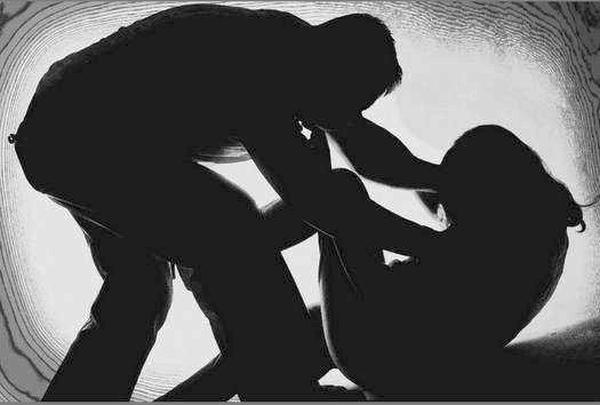
By Martha Agas, News Agency of Nigeria (NAN)
A Plateau High Court recently sentenced 40-year-old man, Sani Usman, to two years imprisonment for raping a four-year-old girl. The court, presided by Justice Iliya Ashoms, however, gave the convict, N100,000 option of fine.
The convict’s counsel had pleaded with the court to tamper justice with mercy, as the convict is a widower with five children.
Also, a Kasuwan Nama, Upper Area Court, Jos, sentenced 35-year-old, Raymond Adamu, who with two others still at large, conspired, drugged and raped a minor, to two years imprisonment.
These light sentences to rape offenders, which is common across the Nigerian judicial system, analysts say are responsible for increased rape cases.
Rape statistics in Plateau showed that more than 600 minors were raped between 2015 to 2018, excluding unreported cases.
In 2016, the Observatory Steering Committee (OBSTEC), saddled with the responsibilities to collate and address gender based violence cases in Plateau, said of the 123 rape cases report to it, 80 per cent involved minors.
Worried about the light sentences imposed on rape convicts, Christian Women for Excellence and Empowerment in Nigeria (CWEENS), the organisation which coordinates activities of OBSTEC in Plateau, said rape laws should be made more stringent.
Mrs Comfort Zawaya, Secretary of OBSTEC lamented that some of the existing provisions in the Penal Code were outdated and obsolete.
However, with the domestication of the Child’s Right Act in Plateau, stiffer penalties shall now be imposed on rape offenders.
Section 31 of the Act provides that: “No person shall have sexual intercourse with a child.
“A person who contravenes the provisions of sub section (1) of this section commits an offence of rape and is liable on conviction to life imprisonment.’’
Under the Criminal Code, the Violence Against Persons Prohibition Law (VAPP) and Child Rights Act, the punishment for rape is life imprisonment, but under the Penal Code it is a maximum of 14 years imprisonment.
Mrs Adefunke Treasure, a legal practitioner, however, lamented that most of the sexual laws were faultily implemented.
“The justice system has failed thousands of child rape victims, imagine a magistrates’ court granting a bail in paltry sum of N50, 000 to a rapist or sentence a pedophile to one year imprisonment.
“ It means our society is conniving to protect rapists by frustrating and further traumatising abused victims.
“The law and procedures of prosecuting sex crimes are lenient to offenders. The true picture of a society is revealed in how it treats children,’’ she said.
In the same vein, the International Federation of Women Lawyers (FIDA), Plateau chapter, alleged that some police officers frustrate rape cases.
They alleged that the police grant bail to rape suspects, which they noted was not right.
Mrs Mary Izam, chairperson of FIDA in Plateau, during a courtesy visit to the then former Commissioner of Police in Plateau, Undie Adie, expressed concern over the conduct of police personnel.
She also said that rape cases should be filed at the high courts.
“Child rape is a capital offence and such cases should be prosecuted at the high court as stipulated,’’ she said.
Prof. OluwaFunmilayo Para-Mallam, who spoke on the issue, said there were some shortcomings in the Child’s Rights Act.
Para-Mallam said that under the Act, offenders were treated with kid gloves.
The professor of Gender and Development Studies at the National Institute of Policy and Strategic Studies (NIPSS) Kuru, said that stringent punishment must be imposed on rapists.
“The child is destroyed physically, psychologically and socially by stigma, while still battling mental scars for generations.
“Findings show that most abused children are abusers too, punishment for a rapist is death even in the Bible, law against rape should be stiffer, “she said.
Mrs Hasana Dauda, whose 12-year-old daughter was raped, believes that punishment such as the cutting-off of the male reproductive organ will check rampant rape cases.
As bizarre as it may sound, she believes it will not only end the gory tales of rape in the society, but will be more effective than `travails’ of the judicial system and its bureaucracy.
National Association of Women Journalists (NAWOJ), Black Diamonds Foundation and FIDA in their various sensitisation and advocacy visits to the judiciary, security agencies and faith based organisations, stressed the need to strengthen the laws against rape.
Mrs Jennifer Yarima, NAWOJ Chairperson in Plateau, at a sensitisation meeting with girls between the ages of 5 years to 12 years, educated them on actions to take to avoid rape.
The children were advised to avoid certain postures with teachers or relatives, especially with the opposite sex.
Mrs Mildred Bako, the Coordinator of Voice for the Girl Child, called for the establishment of an early warning detection mechanism in schools and Ministry of Youth Affairs, to help curb child rape.
She explained that the early warning system would ensure that the Nigerian child has sufficient training on how to avoid and report sexual abuse.
“The early warning mechanism will ensure that perpetrators of such ungodly acts were reported without prejudice or fear of retribution.
“Government agencies responsible for the protection of child rights should ensure effective sensitisation of all forms of vices against children.
“They should provide a feedback platform for children in all primary and secondary schools on sexual offences, “she said.
With the domestication of the Child’s Rights Act by many states, stakeholders want the police to arraign rape suspects before high courts where they will be handed down maximum sentence.
(NANFeatures)